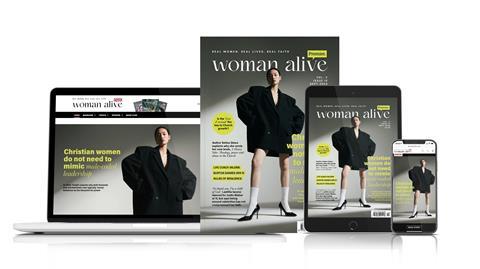Dr Belle Tindall unpacks why anti-feminists and feminists alike are still viewing typical ‘male’ attributes as necessary for leadership
As a Christian who also happens to be a woman – but I guess, more than that – as a Christian, who also happens to be a woman, who also happens to deeply believe in, and fight for, the political, social, economic and spiritual equality of the sexes, I tend to think about the nature of leadership a lot.
Political leadership.
Church leadership.
Business leadership.
Social leadership.
Cultural leadership.
Thought leadership.
You name it, I’ve probably dwelt on it.
I guess I should put my cards on the table for you from the offset: I’m in the category of people who think that there is no leadership role that is out of bounds for a woman purely because she is, in fact, a woman. This isn’t a stance that I’ve come to easily, nor is it one that I hold lightly – I’ve fought, cried, prayed, learned, talked and processed my way into this conviction.
So, it’s not so much that I dwell on whether women should be in positions of leadership, I happen to absolutely agree with Mary Robinson, the former president of Ireland, when she declared: “I want more women heads of state, more cabinets that have equal membership, more parliaments that have equal membership. I want a really changed world…more women at the table at all levels, particularly at the high level.”
Yes, yes and a hundred more yeses to that. Get it printed on a T-shirt.
Male-coded leadership
More recently, I’ve been wondering if such a stance is enough. If I really want women to be in positions of leadership (which I do), there’s more thought that needs to go into what leadership is – what it can be, and what it should be. Because I’ve become aware of just how male-coded our understanding of what good leadership is.
I think back to when the American presidential election of 2024 was raging on, and I scrolled past a 30-second clip of a man telling an interviewer that he wasn’t going to vote for the then-Republican candidate, Nikki Haley, because women are too emotional to be president.
I ponder how, earlier this summer, the UK’s (first female) chancellor, Rachel Reeves, was blasted for crying in the House of Commons chamber while the prime minister was answering MP’s questions*. Endless headlines, questioning whether she was fit for office – you know, now that we know how emotionally fragile of a woman she is.
Now, a little aside is that these are not only overtly sexist remarks, they’re also a little illogical. ‘Emotional’ has become synonymous with women and the way women stereotypically express such emotion – teary, hysterical women, aye? Who needs ’em? And yet, is anger not an emotion? And so, is punching a journalist not an emotional reaction? How about swearing on the White House lawn? Or angrily tweeting day and night? All of which have been carried out by – you guessed it – men.
But I’m not actually going after emotion here. Maybe we need more emotion in politics.
What I’m pointing out is that when women act like – well, women – they’re deemed unfit for leadership. Why? Because our idea of leadership is so darn male-coded.
And feminists aren’t blameless in this.
Leading as our true selves
A common critique of feminism (second and third wave feminism in particular) is that it encourages women to assimilate men in their priorities, their trajectories, their desires and even their behaviours – all to aid the struggle for complete equality between the sexes. And I just wonder whether such thinking means on the rare occasion that women are achieving equality with men, when they are finding themselves sat at the table, when they are holding the highest offices – are ‘male’ characteristics still the ones being championed, celebrated, valorised? While ‘female’ attributes are still considered a weakness, a hindrance, something to be suppressed.
This begs the question, is that really equality? Is that really all we can hope and strive for?
I often find myself assimilating my male colleagues and peers, wanting to erase our differences, determined not to be some kind of token female. But is this the right way to go about things? Is the best way really for me to show up in male-only rooms and to give into the idea that success looks one way – their way? To surrender to the centuries-long notion that professionalism, confidence, intelligence, leadership – all of it looks like them? And so, if I want to be perceived as having any of the above, I need to look/sound/act/think like them, too?
I suddenly feel such an urge to kick back at that, whether it be coming at me from feminists or anti-feminists. It feels unhelpful, untrue and very un-like God.
What if our behaviour isn’t unpalatable?
What if our emotions aren’t a weakness?
What if our sensitivity has something sacred about it?
What if femininity is a cosmic design, not a deficit?
And what if it’s exactly what this broken and hurting world needs right now – more leaders who cry?


































No comments yet